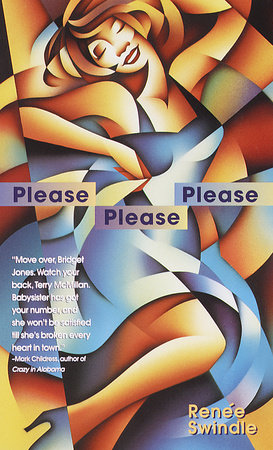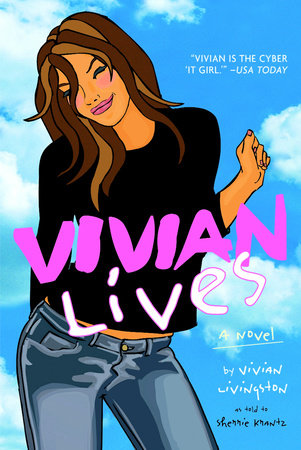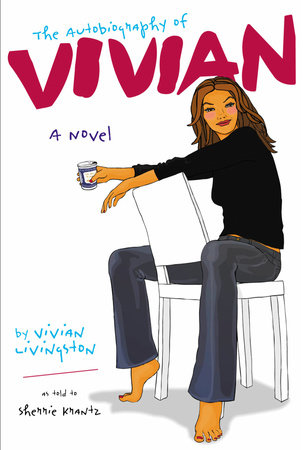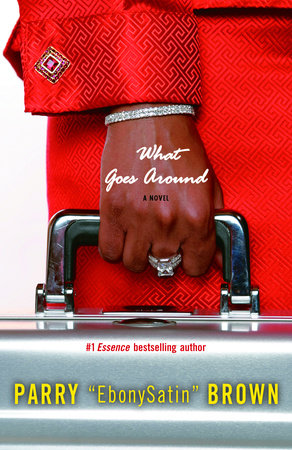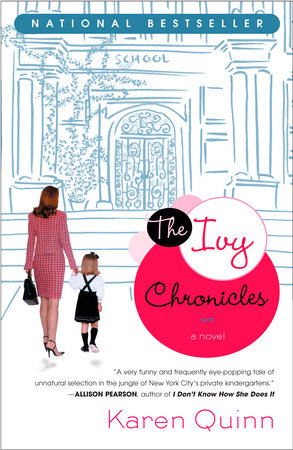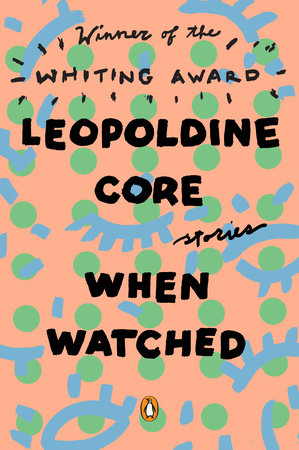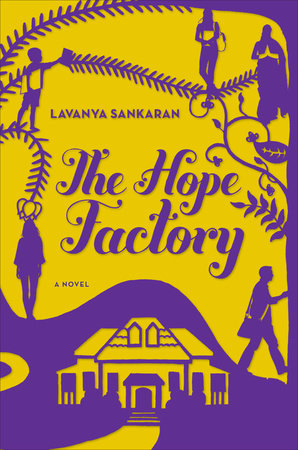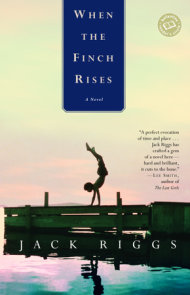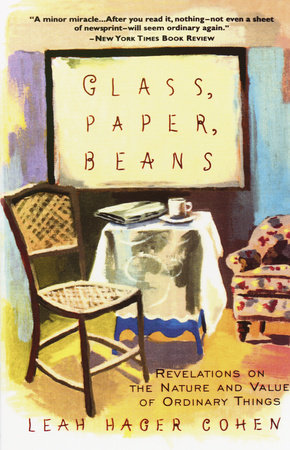Author Q&A
Connie May Fowler and Jack Riggs Discuss The Fireman’s Wife
Connie May Fowler: What was your inspiration for the novel?
Jack Riggs: You know, sometimes the stories that we end up telling aren’t the stories that we intended to tell. That certainly happened when I sat down to write my second novel. I spent about two years working on a book that Ballantine decided not to publish. It was a hard time for me. When the Finch Rises had been such a wonderful experience and suddenly I really wondered if I ever would publish a second novel. The next summer, while I was trying to figure out my future, I was down at the beach south of Myrtle where I concentrate on my writing–a noisy, crowded, boisterous family beach just like in The Fireman’s Wife–and my agent got a hold of me and said Ballantine was still interested in something new.
I was thrilled, but what would I write about? For some reason, I had been thinking a lot about Larry Brown lately. I had read him very early on and became friends with him even before I was published. I would talk to him from time to time, and he was always so gracious with his words. When he died, it was just devastating to me, as it was to many others. I had recently reread his memoir On Fire, and was thinking about how Larry had been a fireman years ago, when I noticed a fire truck from the station next door to my condo was heading out on a call, and for whatever reason all those thoughts and impressions coalesced into one at that moment and I thought, What the hell, at least Ballantine is still asking. So I told my agent that I was working on a story about a fireman. I asked her to give me a week and I’d send her something when I got home. And that’s when I started writing The Fireman’s Wife. It came out of a great confluence of emotion and need, of failure and desire to begin again. That was the seed, but of course there was much more.
CMF: Do you feel like you chose this story and these characters, or did they choose you?
JR: I always feel like the characters choose me. Peck was the first to come on board. He found me down there at Garden City Beach, beat up and needing rescue. Cassie came a bit later. She was the hardest to understand. Maybe it’s because she’s a woman and I’m a man and it was harder to communicate, I don’t know. I started with Peck’s story, and as I went along and Cassie began to trust me more, the story really became hers. Peck’s story is about other folks’ disasters and how he tries to help the victims survive, but it’s Cassie, on the other hand, who’s in trouble, she’s the character in transition. She needs rescuing. I just didn’t know it early on. She pretty much demanded that her troubles be front and center, so that this becomes a story about how she is trying to right a wrong life. Her choices are certainly suspect, but the attempt is true and real. Peck is there to support her as well as he can and to give her room to breathe. He finds his own peace while Cassie attempts to find hers.
CMF: What prompted you to write this novel from both Cassie’s and Peck’s perspective?
JR: That’s a good question. When I started looking at Peck’s and Cassie’s lives, I wanted to make sure I did both of them justice. What we forget is that there are always two sides to any problem and usually both sides have a degree of validation to them. Peck is a strong man who understands, to a certain degree, what his wife is doing. But Cassie is sympathetic too, even as you can see that she’s a bit out of control. I wanted to explore the idea of a relationship caught in the tides of change. It is 1970 and women’s lib is pretty intense, so I wanted there to be an undercurrent of that running through the book, and I wanted to explore the confusion on both sides of the relationship in that context. Look, Cassie got pregnant at eighteen, lost her chance to go to school, was kicked out by her father, and has lived the last fifteen years of her life in an area of the country that she doesn’t really understand, the low country of South Carolina. We have to be in her head to understand why she becomes so restless, and we have to be in Peck’s head to see the impact of her choices on the rest of her world and the people she loves. It was just apparent early on that I would have to look at this story from both characters’ points of view. It made the book tough to write because I always had to be thinking from both perspectives. It took longer to process information and character motivation, but in the end, I think it worked well.
CMF: Was it difficult for you to slip inside the voice and viewpoint of a woman?
JR: It was more difficult to slip from one point of view to another and keep the story moving forward, but if I have to answer that question, yeah, it was harder. I’m not a woman, never have been one, never will be, so I had to consider my own sensibilities and filter them with extreme care to make sure I found the right voice.
In some ways, such as human nature and emotions, men and women are the same. But our actions and thoughts are often in stark contrast. In this particular case, Peck moves quickly, decides and takes action. Cassie spends lots of time deciding on things, is careful with her words, moves quietly to begin her journey to self-discovery. To juggle those two patterns of thought and behavior was difficult, but I enjoyed Cassie the more I got to know her. She became a strong character for me, especially after I spent some time near Highlands and Cashiers, North Carolina. Once I understood her terrain, the geography of where Cassie grew up, then she became much more real to me. I was able to write her then.
CMF: Did you do anything specific and intentional in order to shape-shift into a woman’s point of view?
JR: It’s funny, but early on, I wrote Cassie’s story without the use of contractions. I wanted her thoughts and her dialogue to seem more proper in a way. It gave me a starting point for a voice. I found pictures of women who could have been Cassie, thought about the type of clothes she would have worn, her skin type and such. I listened to and observed my own wife. She helped me a lot with mannerisms and dialogue; how to write it so it sounded and felt real. I thought about her language patterns and behaviors, watched my daughter and noted her body language and behavior around the house. Madison is younger than Kelly, but she’s entering the stage of her life that I think is timeless, that teenage period where she’s too cool. It was fun to watch her and it was fun to think about my wife in Cassie’s position. She’ll be surprised to hear this, but it’s true.
CMF: You do something very brave in this book; you detail an issue that is present in the lives of many women but is hardly ever spoken about: Cassie resents her daughter. What is the source of the resentment? Do you believe her resentment is justified, or do you see Cassie as a flawed and perhaps even bitter woman?
JR: I think Cassie is a woman in transition, and people in transition sometimes do things that appear crazy and inappropriate to others. We go crazy for a while and then the ship rights itself and we go on with our lives like nothing out of the ordinary ever happened. Cassie has been coming to this moment for a long time and now will not let anything stand in her way. She does love her daughter, even though we see her use the girl in some ways. From a distance we might see her as a bad mother, but I don’t think that’s true. In Cassie’s mind, Kelly and Peck stand in the way of her freedom to live her real life, that life she left behind when she got pregnant and had to get married. She wants to get back to what she believes is her true life’s road, and to do that she will have to let some things go: like Peck and Kelly, if necessary. Does Cassie resent Kelly? Probably on a real silly, immature level, but deep down, she’s a mother and a good one at that. I think Cassie is bitter, yes, and flawed. Her life, in her estimation, has been one of captivity. Like she says, when she returns from a visit to the mountains, she feels like she is a cornered animal. All human beings need to feel like there is an opportunity for growth in their lives. If we lose that, I think we lose the will to live. So Cassie is fighting back, albeit in a way that is less productive than she hopes.
CMF: Cassie is resentful of Clay, saying that “Sometimes Clay will just take over,” yet she leaves her husband for him. What does Cassie truly want?
JR: I think Cassie just wants to be herself and, as long as she feels trapped, she is struggling to find who she is. I also think Cassie wants to have one final chance to understand why her father did what he did those many years ago. Clay is a means to getting out, and as the book begins, we get the strong impression that Cassie knows that going with Clay is just “trading a fireman for a fireman,” but she has no other way to do it, and so she sticks with it. But interestingly enough, as she begins to free herself, she drifts further from Clay, too. I think as Cassie gets further away from Peck, the more she begins to understand him and what her life with him really means. Of course things happen and it’s not easy to just say “my bad” and go back to normal. Cassie’s actions bring about consequences that have devastating results. She learns a very hard lesson before the book is through. And though she was looking for this rearranged life, in the end, the completeness of that change is incredibly powerful, is beyond anything she ever imagined.
CMF: When you were a little boy, did you want to be a fireman when you grew up?
JR: I think all boys pretend to be things like firemen and soldiers. I don’t think I particularly thought I would ever be one, but I certainly romanticize that type of character. When I was growing up, I remember visiting fire stations, and listening for the fire siren that always announced where a fire was burning. There was a page in the back of our telephone book that had all these fire codes, and when the fire horn would blow, it sent out a series of blasts that would correspond to one of these number codes. You could look that code up on a map of Lexington and find where the fire was burning. I remember once, we heard the fire horn and checked the map and realized it was Dixie Furniture, the local furniture factory where many in Lexington worked. It was a huge and expensive fire, one we all drove downtown to watch.
Like I said, the early ideas of this book came from being at the beach and hearing a fire engine go out. And then there’s Larry Brown and my impressions and thoughts about him. Of course there is 9/11 and all the firemen lost in that event. But one moment that affected me most came in the summer of 2007 when nine firemen lost their lives in a blaze in Charleston, South Carolina. Ironically, I was back in Garden City Beach with my family on vacation, taking a break from writing, when the news of this huge fire came on the television. As we watched, the number of firemen grew until the news began to report that nine had died when the roof collapsed. It was the worst fire disaster since 9/11. I found it terribly poignant that I was writing a book about firemen in South Carolina, and here in Charleston nine lives were lost on a summer evening while we were all enjoying the beach. It left its impressions on me and colored the thoughts Peck had about summer vacationers at the beach and the type of calls his crew eventually went out on.
CMF: The firefighting information is so real and detailed. What kind of research did you do in order to achieve the level of verisimilitude that is present in the novel?
JR: Well, here you go. I wish I could say that I was a fireman for a month, that, for research, I walked through flames alongside my brother firemen. It would be nice to be able to say that I am a volunteer fireman or something like that, but alas, I am not. My father was not a fireman. My brother is not a fireman. I have a couple of friends who are firemen and I’ve been to a fire station with my son’s Cub Scout troop. But having said that, I will tell you that I did a lot of research on fires and firemen. I read tons of material until I felt comfortable enough to write about it. It was all researched and then written and rewritten until I felt I had accomplished an authentic feel. For me, the story must feel real. In When the Finch Rises I had a character that was bipolar, and so I had to arrive at a degree of verisimilitude before I felt like I could believe in her disease. In The Fireman’s Wife the same level of authenticity had to be reached or else I could not have written the story. Of course, my worst nightmare is that some fireman will read this book and say, “That’s not the way it happens at all.” My only retort to that will be, well, maybe that’s the way they did it in 1970! It helps to write in a time well past, but that also presents its own set of problems. You have to know what was available at the time, and how procedures worked nearly forty years ago. But it also helps to ease the reality of the moment. I hope I have connected in a real and authentic way. I think I have.
CMF: Are you a surfer?
JR: Yes! Now I can say I am. I learned this summer. It’s the one thing I always wanted to try, and I think I need to thank Peck for giving me the incentive to try. I was a snow skier, but I haven’t been on skis since 1992. The one thing I remember about skiing was how free I felt sliding down the mountain. It’s something that would stay with me even after I came off the slope and went to bed. I loved snow skiing, but I am transfixed by surfing. It is so much more a self- contained sport. You don’t need a ski lift to get you to the top of a wave. You just need to paddle out and wait. And then the motion, the drop off the lip of a wave and skimming along the trough just seems like the most organic activity in the world. I liked surfing as a metaphor for Peck–this idea of being one with the ocean, one with the low country, seemed fitting. It was the perfect sport for Peck, too, because it gives him a sense of being a bit alternative. At first, my editor didn’t like that Peck surfed and smoked pot, but as I showed her drafts of the final story, she bought it totally.
CMF: Setting in the novel is very important. You quite successfully juxtapose the opposing nature of mountains and beach. In what ways are these symbolic of Peck and Cassie as opposites?
JR: Setting is always preeminently important to me. When I write I have to have three elements in order to really get going on a story. First, I have to have a strong, believable character who will trust me with his or her story. Second, there must be conflict, and third, but equally important for me, is a strong setting, or as I like to call it, a strong sense of geography. And of course in this story the geography is almost a character itself. I have juxtaposed the mountains and its feeling of a lush wetness against the low country and a hot sandy dryness. I think the contrast speaks for itself.
Symbolically, both geographies have dual meanings, I think. For Cassie, the mountains represent her childhood and John Boyd Carter and all that she endured during those dark days, but it also represents all that she lost, the opportunity to go to college and accomplish something with her life. The mountains, especially Whiteside Mountain, represent something that is old and transcendent; Cassie needs the mountains to complete her. She needs them for internal strength, and she needs to be in the mountains as a way of fulfilling her life, taking up where she left off fifteen years earlier.
For Peck, the mountains represent foreignness, a sense of being landlocked. When he is up in the mountains, he isn’t familiar with things, can’t pick out the nuances in the landscape that Cassie can see from high above on Whiteside Mountain. It represents a threat to him as long as Cassie feels the need to stay in the mountains and not return to him. Still, at the same time, he recognizes the mountains in Cassie’s life in much the same way that she recognizes the low country in his.
For Peck, the low country is life as he knows it. The marsh and the beach are the marrow in his bones. It’s as if the surfboard and the waves complete him. For Cassie, a fair-skinned woman who doesn’t understand the flatness of the marsh, the low country is like a desert to her. For each, the other’s geography imprisons. For each, their own geography is freeing.
CMF: How is finding the deed a form of redemption for Cassie?
JR: One of the subplots that drives the story is the land deal that has gone bad for Cassie’s mother. When I discovered this in the story, I realized that the deed and the problems surrounding it are really a metaphor for Cassie’s battle with her dead father. In When the Finch Rises, it was the photograph of the lynching that became the symbol of struggle between father and son. In The Fireman’s Wife, it’s the deed that brings out the struggle between Cassie and Parker. It is also the vehicle that helps Cassie understand herself, a way of finding her own inner strength. It is the accomplishment of finding the deed and the way she resolves the issue with John Boyd Carter that helps Cassie grow into her own.
CMF: It seems to me that Peck is surrounded by death and, early in the novel, he is particularly surrounded by the death of young people. How does this proximity with mortality affect Peck?
JR: I think Peck sees his own life in the victims he has to confront. Clay likes to think of himself as a “thinking fireman,” but Peck understands the raw nature of the beast and is always prepared. Fire burns and changes everything it touches, and the resulting deaths teach Peck lessons for his personal life. I think death builds a strength and understanding of the human condition in Peck that allows him to continue to try with Cassie. He sees her flaws. He sees his own flaws and because of it, I think he’s more patient with Cassie and her behavior. His work preoccupies him because of the danger and death that is always present, and that probably works against him at home. But it is something that makes Peck the man that he is.
CMF: Cassie’s father cast her out of the house and church when she got pregnant out of wedlock. It seems to me that this exile was deeply wounding to Cassie and may be at the crux of her general resentment. How do you view this banishment in Cassie’s life?
JR: The banishment is definitely the seed of Cassie’s problem. Without Cassie’s being cast out of church and home, and without her being forced into marrying Peck and moving to the low country, the story becomes something entirely different. This is the most important back story material in the book. It sets up Cassie’s struggle with her father, with John Boyd, and eventually, with herself. Of course in the end, we all know that we can’t go home again, so for Cassie the moment of banishment is directly connected to the moment of return when she leaves Peck. It all culminates into a revelation for Cassie. The problem is that in doing this, Cassie sets in motion a series of events that will eventually bring her to her knees. It’s all part of the same thing, the full story, if you will, that begins the day she finds out she’s pregnant with Kelly and then is banished for good by Parker.
CMF: Do you think readers might see this story as antireligious?
JR: I worried that it might come off that way, yes. But I don’t think that’s the way it looks now at all. I was trying to make a subtle suggestion about the restrictiveness of this type of religion, but when I started working with this part of Cassie’s life, I was afraid of cliché and the type of character that ends up being too much of a broad stroke and not subtle enough to feel authentic. I think, though, that Parker comes off pretty real and I’m happy about that. I also like the idea that John Boyd Carter is involved in the banishment, and I think it deepens the divide between Cassie and John Boyd when we get into the land deed battle.
CMF: Are the religious themes intentional or do they simply flow from your own experience and convictions?
JR: If you are familiar with my first book, you know that religious themes are intrinsic to the story, and I am always conscious that my characters in the end are on some sort of theological journey. After all, as thinking and reasoning human beings, we are seekers. We want to have answers or maybe we want to avoid the answers to the questions that have always been there. What is the meaning of our existence? Is this really all there is? What is my destiny? Simplistic questions, but ones that have in one way or another defined us. Cassie is the most obvious seeker here. She is the one stepping out onto the metaphorical tightwire when she leaves Peck. There’s a little prodigal son metaphor here, and a bit of the idea of costly grace. A type of understanding, if you will, that only comes to us through great sacrifice and suffering. Cassie is on that road and it is a road that has to be taken, if she is to find herself. The problem with her journey, of course, is that there are dire consequences that she cannot imagine. In that regard, the story is like a biblical parable. Or at least, that’s the way I see it.
I try to show a theological journey while at the same time take a look at the darker side of organized religion, or maybe I should say the more complicated issues of organized religion. I don’t want to condemn religion, but with Parker, Cassie’s father, I wanted to show that religion isn’t always clean, that sin and redemption are messy sometimes. When Cassie reminds us what Parker feels he is providing his congregation when he has Meemaw take those young girls back into the mountains for abortions, we can understand more clearly what Parker feels is his battle with the devil. What he participates in might seem criminal to most, but I love the way he looks at the issues he is dealing with. It’s complicated, and it’s uncomfortable, but then many stories in the Bible, when they aren’t sanitized or “child-proofed,” are uncomfortable.
CMF: When you started the novel, did you know what Peck’s fate would be? If not, when did it become clear to you?
JR: When I started this book, I knew Peck much better than I knew Cassie. I always figured Cassie would have an affair, get pregnant, go for a back-alley abortion, and then die. I started the novel with that idea in mind, but as I continued to discover Cassie’s character, I started liking her, and doubting that she would die. Then my daughter and I went to Tallulah Falls right before New Year’s Eve, 2006, and I discovered that Karl Wallenda walked the gorge in July of 1970. As soon as I learned of Wallenda’s walk, it was almost as if Cassie spoke up and said, “Hey, you can’t kill me because this is where I end up at the end of the story. I’m still alive.” And I knew then that Cassie wouldn’t die and that I would have to figure out the issues between Peck and Cassie if the novel was going to work properly.
Now I know that my answer seems to have nothing to do with Peck’s fate, but in reality, it has everything to do with it. I realized I needed to understand Cassie and her fate before I could realize Peck’s. In fact, when Peck finally revealed his fate to me, I couldn’t buy it. I didn’t like it, and I didn’t want to write it. But I learned with When the Finch Rises that I don’t have a lot of control over what my characters tell me to do.
CMF: The Great Wallenda plays a quiet but important role in the novel. How do you see his importance in Cassie’s life?
JR: Well, as I have just mentioned, when I discovered Wallenda’s walk across the gorge during a visit to Tallulah Falls, I learned that Cassie wouldn’t die, that she would live and be there when Karl Wallenda did his thing. It also became a wonderful metaphor for Cassie’s own life, the idea of walking her own tightrope of life as she tries to find herself and deal with leaving Peck and somehow remaining a mother to Kelly. The last chapter where Cassie is there at the gorge watching Wallenda on the tightrope brings the whole novel into focus for me. The frail acrobat moving through great danger, balanced there a thousand feet above the gorge, walking toward safety on the other side, is precisely Cassie’s life.
CMF: I think Cassie’s great peccadillo is her ingrained resentment. What is Peck’s?
JR: Ah, her “peccadillo.” I like that word. Peck? He’s perfect, I think. But really, if you want a serious answer, I think Peck’s peccadillo, his sin, is his inability to see Cassie’s suffering for what it really is. He’s so busy with his life as a fireman, he can’t see what Cassie’s unhappiness is doing to the relationship. I think Peck feels deep down that Cassie will always come back because she always has. He’s guilty of letting things get too far out of hand and not seeing Cassie as someone who needs to have her own life and her own identity in that life. It was something that happened to a lot of women in the seventies, and as a product of that time, I saw many of my friends’ parents, those who were important role models in my life, get divorced and move on into new and different lives. It was unsettling to me at the time, but I came to understand what was going on, how women were subjugated in their lives, and I think that has happened to Cassie. Toward the end, I think Peck makes headway in understanding what he has done to Cassie and her life. When he is with her at Western Carolina, he sees what she missed, and understands, I think, his responsibility for some of Cassie’s loss.
CMF: I think that one of the things a novelist has to do is love his or her characters–even when they are dastardly. Was it easy for you to love Cassie or did you have to work at it? Or perhaps the better question is: Do you love Cassie?
JR: I do love Cassie. I love her so much that I couldn’t kill her! That sounds funny, but it’s true. I will have to say, though, my love for Cassie came gradually. Not that I hated her. I never thought what she was doing was wrong in an evil sense. Cassie is human, just like the rest of us, and humans struggle with life and love. Cassie is struggling. She is a seeker looking to find herself again, and when we participate in such a life’s journey, someone is always going to get hurt.
As I said earlier, I didn’t really know Cassie very well until I spent some time in the North Carolina mountains where she grew up. While I was up there, I talked to people, hiked some beautiful country, saw the church that I imagined Parker preached at while Cassie grew up. I could see her on the land and I could feel her presence there, especially in the eyes of the folks I talked to. And I came to understand her journey as being the lifeblood of this book. She is a fighter, just like Peck, and they compliment each other very well. I think Cassie comes to understand that at the end of the book. She is authentic, and yes, I do love her.
CMF: Writing a novel is such an organic process of discovery. What discoveries did you make while writing this novel that surprised you?
JR: I’m always surprised at the fragility of the story, how, if you are not careful, you will miss things that are vital to the success of the story. In Finch, it was the photograph of the lynching and a section I put in very late in the revision process where I explained the return of the finches to Finch Creek. Without that, I think the book misses a very lyrical moment, and a thread that pulls the novel toward its conclusion. In The Fireman’s Wife, it was discovering the story itself, how it moved from being Peck’s story to Cassie’s and how Cassie came alive to me. If I hadn’t been prepared for anything to happen, if I hadn’t been sensitive to the story changing in midstream, then I might not ever have finished it. It sort of oozes out, and what I have learned is that it is a 24/7 job. I have just started to rest and to let go of the intensity involved in telling this story.
The other thing that surprised me about this book was how hard it was to write it. I mean, it’s been five plus years since When the Finch Rises came out. I wrote a second novel that did not get published, questioned myself as to whether or not I would ever publish again, flew through editors like a hot knife through butter, until I finally landed on a good one, wrote and wrote and wrote and wrote until I couldn’t write anymore and finally, after it was all done, I looked up and a book was waiting at the end of this incredible journey. It was hard, really hard to get it right this time, so I hope people will read it and come away understanding the story of Peck’s and Cassie’s lives together. I say it’s Cassie’s story, but really it’s a love story.
CMF: What is next for you, Jack?
JR: Sleep, lots of it, I hope.
Really, I don’t know. I want to write another book, so I’m looking now, testing a few ideas. I teach at Georgia Perimeter College, a great two- year college in Atlanta, and will continue renewing myself through my students. They are wonderful, especially at the two- year level. They have no idea what they can do but when the light goes on, man oh man, that’s something to behold. I love teaching, so that sits in front of me, the one good constant in my life. But I’ll write more, I’m sure. I need to get this book to bed and then clean my palate, so to speak. I’ll keep you updated, sweet Connie May, that’s for sure.



